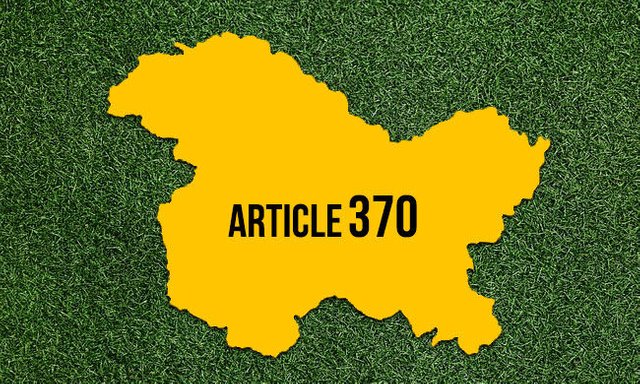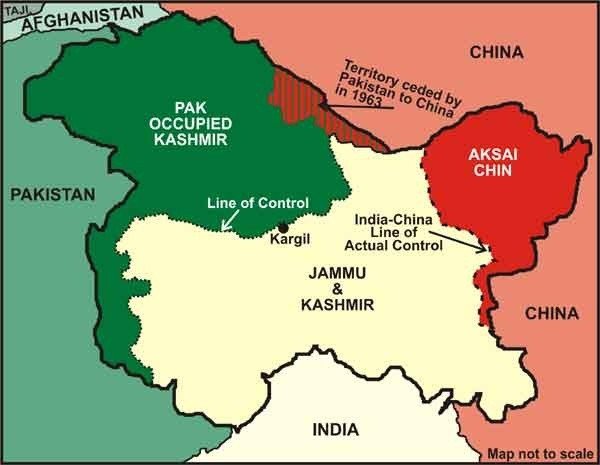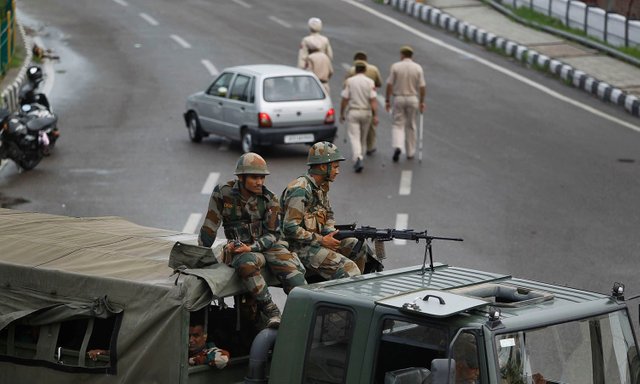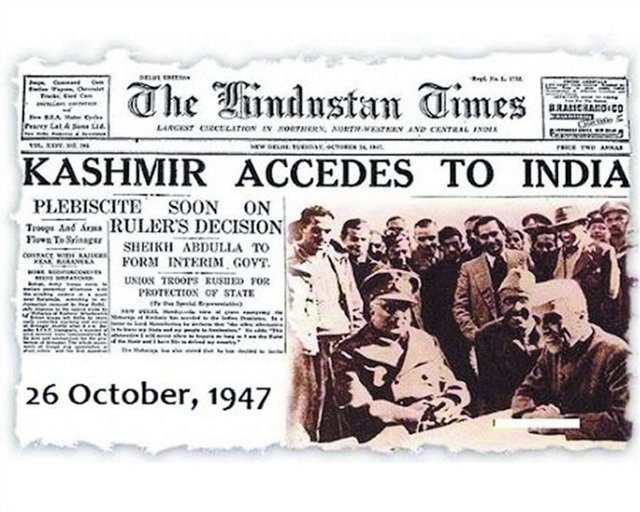What is Going on in Kashmir? - A Primer (Blog)

Both houses of the Indian parliament voted to revoke the autonomy of Jammu & Kashmir on Tuesday. The move will most likely lead to unrest in the majority Muslim region that has been occupied by the Indian state for almost half a century.
The region has been under dispute for most of that time. The while parts of the population want to be a sovereign nation, others want to be part of neighboring Pakistan.
Pakistan's interest in the area is multi-layered. Northwestern Kashmir is under Pakistan administration, but the areas of Indian-controlled Kashmir & Jammu hold the headwaters of the Indus river, Pakistan's water source. Pakistan has funded insurgences on the ground for decades. A good example being the Muslim extremists flooding into the region during the US support for them in Afghanistan in the 80s and 90s. At least two wars have been fought between the two nations over the area. Because of these wars and influx of extremist elements, the Hindu population has been forced out. This leaves over 12.5 million people, mostly Muslim, under occupation by a large Indian force of between 500-700 thousand.
To get an idea of what this declaration is all about, let's start with a quick summary:
At the time of the British withdrawal from India, Maharaja Hari Singh, the ruler of the state, preferred to become independent and remain neutral between the successor dominions of India and Pakistan.[3] However, an uprising in the western districts of the State followed by an attack by raiders from the neighbouring Northwest Frontier Province, supported by Pakistan, put an end to his plans for independence. On 26 October 1947, the Maharaja signed the Instrument of Accession joining the Dominion of India in return for military aid.[4] The western and northern districts presently known as Azad Kashmir and Gilgit-Baltistan passed to the control of Pakistan, while the remaining territory became the Indian state Jammu and Kashmir.

The Instrument of Accession was created after British Rule ended and Indian began to build its state. The area of Kashmir looked to be an independent nation, but attacks from the northwest (Pakistan controlled Kashmir) forced them to accept a deal with the new Indian state for protection. The Instrument of Accession was that pact. It stated that India would have control over three subjects within the region: foreign affairs, defense, and communications. In 1949, the Mahraja Singh sent his Prime Minister Sheikh Abdullah to negotiate with the Indian government. A "special status" was created, which included sovereignty for permanent residents. This means land ownership, which eventually leads to a majority Muslim population and not much migration from other groups. That's important to remember.
The area of the Accession that deals with the "3 subjects" is called Article 370. It states that the only way a change can be made to the scope of control is by presidential order AND the acknowledgement of the state constituent assembly within Jammu & Kashmir. This assembly dissolved in 1956, theoretically making it impossible for changes to be made. This would slowly become a problem for the more nationalistic sects within Indian society, whom wanted J&K brought into the cultural fold. Which would mean migration to the region and a change in demographics.
This Tuesday, Amit Sha, leader of India's Upper House announced the revocation of Article 370 and declared that J&K would be split into two "Union territories". The first territory would be Ladakh, the eastern, mountain region of the area that is sparsely populated by mostly Buddhists. Ladakh would have no legislative body. The second territory would be Jammu & Kashmir, which would have a "legislative assembly". The central government argues that this new body has the same powers as the constituent assembly that signed on to Article 370 in the past, meaning they can make and agree to the changes proposed by President Modi. This blatant attempt at corruption will be fought by members of the parliament and noted by outside parties (Pakistan & China), but it looks like it will be no use.

President Modi was reelected because of his very nationalist, sometimes racist base of right-wing Hindus parties. In preparation for this announcement, India ordered all tourists out of J&K last week. Communication have been cut to the region, making it impossible for people to organize against the declaration. Local leaders that the central government fear might lead in some opposition have been placed under house arrest.
As hotels, guest houses, private and government buildings were converted into makeshift jails in Kashmir, the Valley turned into a massive prison with as many as 400 politicians, aides and separatist leaders being put under arrest.
Schools and public buildings have been closed and thousands of additional Indian troops have been brought into enforce the move.
The US & UN have asked for all parties to "maintain peace" and that there is "concern over human rights". Pakistan and China has warned Indian against the move. With Pakistan making it pretty clear they will support any coming insurgent movement within the region fully.
I will continue to follow this as it unfolds, along with doing some real research into the very complicated past that lead to this point.
Content
You can find the audio version of the episode here and on ITunes, and as always, the video is available here:

